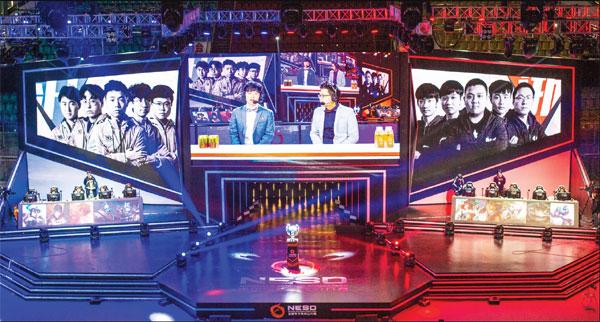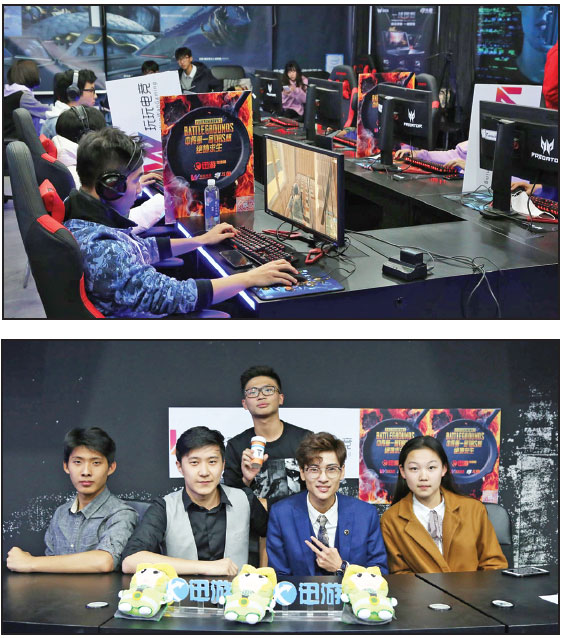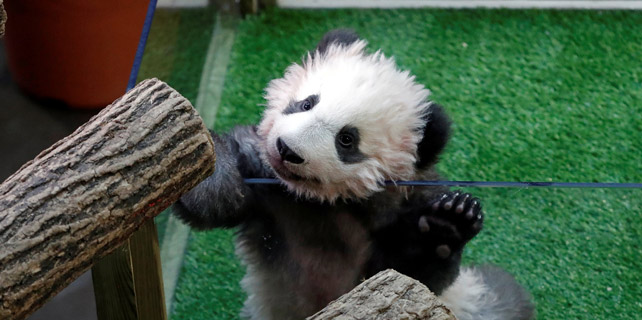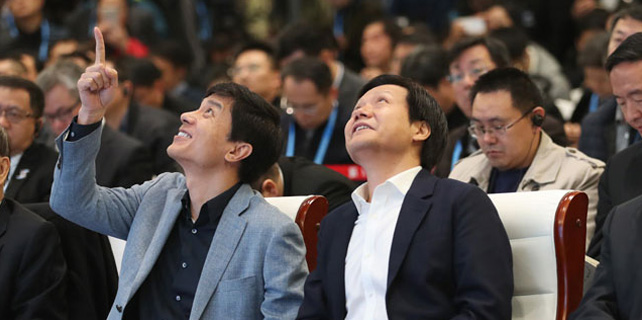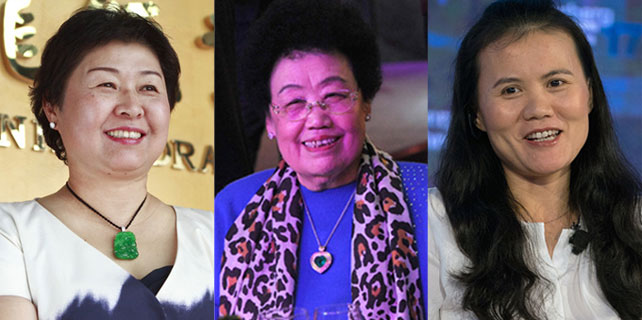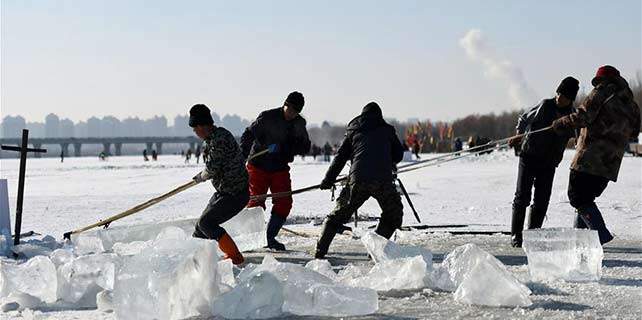Playing the education game
Esports is now a new academic option in universities, and students are opting for it in droves. Jiang Yijing reports.
Playing video games isn't just a hobby for many Chinese youngsters. With the country's booming gaming industry, electronic sports are now becoming a new academic option at universities.
Hu Yifan is one of the first 20 students of the game design major at the Communication University of China in Beijing.
|
The National Electronic Sports Open is held at Sichuan University in Chengdu in December. Sichuan province has been attracting China's top esports players. Yuan Kejia / For China Daily |
More than 900 candidates applied for the major, but the 18-year-old from Guangzhou, the capital of Guangdong province, got a high score in the entrance exam, thanks to his experience organizing esports competitions in high school.
The School of Animation and Digital Art at the Communication University of China started the major in 2017 with the aim of developing students' capacity in game design and esports management.
The school started degrees in game design in 2004 - it was one of the first in the country to do so - and has kept updating its courses over the years.
In the first few years, cultivating graphic designers and game programmers was the major goal, says Chen Jingwei, the head of the school's game design department.
However, the major, launched in 2017, is aimed at cultivating talent in designing game narratives. That, Chen says, is the soul of a game and requires a blend of skills in both creativity and technology.
Students require not only talent in art but also capabilities in communication, teamwork and logical thinking, says Chen.
Li Meng, a graduate of art design from the School of Animation and Digital Art, now works as an image designer at the internet technology company NetEase in Hangzhou, Zhejiang province.
Recalling her days at the university, the 23-year-old says the course involved a lot of discussions and cooperation with students of programming design whenever they worked on a project.
Meanwhile, the teachers have kept updating the courses to keep up with the rapid development of the gaming sector, says Chen.
Besides designing games, students also learn how to host esports competitions in terms of broadcasting and commentary.
According to a report released in June by Tencent, one of the country's major internet companies, 170 million Chinese are involved in esports, including players and viewers, and the industry generated more than 20 billion yuan ($3 billion) in 2016.
However, it faces a shortage of talented professionals.
China Electronic Athletics magazine and Tencent eSports jointly put out the Esports Industry Talent Supply and Demand Survey in September, indicating that the industry had only 50,000 practitioners and was seeking 210,000 more.
The survey also predicted that by 2020, the number of people who were working in esports would hit 570,000.
Esports management is interdisciplinary, meaning it requires people with knowledge of different fields, and it is a new field for Chinese universities, says Chen.
Separately, Chen's school has been cooperating with Tencent, Perfect World, NetEase and other game companies for many years.
The companies help the school update its courses and offer internship opportunities for students to hone their skills.
Xu Li, a professor from the Broadcasting and Anchoring School of Communication University of China, added the esports commentary module to his sports commentary class in 2015 when he saw the craze for esports in the country.
Xu says that while traditional commentators are familiar with mainstream sports, they do not know how to handle an esports game because they are unfamiliar with it and do not know what the audience wants.
Xu's classes now include an introduction to esports, commentary skills and future development. He also works with Tencent eSports on textbooks for esports commentary classes and seeks opportunities for his students to work as commentators.
In October, Hu and his classmates organized an esports competition, which ran for three weekends, attracting more than 160 students who competed in nine games. Students from the university's Broadcasting and Anchoring School were invited as hosts. The live broadcast on Douyu, a popular online-broadcasting platform, has been viewed more than 70,000 times.
In 2016, the Ministry of Education added esports to the list of majors for vocational colleges. More than 10 vocational colleges offered the major in 2017, including Xilingol Vocational College in Xilinhot in the Inner Mongolia autonomous region; Sichuan College of Media and Communication in Sichuan province's capital, Chengdu; and Hunan Sports Vocational College in Hunan province's capital, Changsha.
Most colleges work with game companies or esports clubs and offer students three-year courses. Their purpose is not limited to educating professional players. Students can also choose to become referees, coaches, sports agents or sports analysts.
Meanwhile, more universities are joining the esports education bandwagon.
Shenzhen University in Guangdong province will offer a new course called Esports Planning, Organizing and Management in 2018. And Sichuan University in Chengdu, and Wuhan University in Hubei province's capital, Wuhan, are also preparing to launch esports courses and majors.
Yang Rui, a manager at Tencent eSports, says: "We hope more universities can join to help cultivate esports talent. The shortage of talent has become one of the biggest problems for the industry's long-term development."
Besides working with Communication University of China, Tencent also has regular links with the ESPN network and the Massachusetts Institute of Technology in the United States to find ways to develop the Chinese esports industry, according to Yang.
As more universities and colleges begin to offer esports degrees, some experts warn against the craze.
Wang Dong, a professor at the sports department of Shenzhen University, says it is necessary for universities to stay calm and rational in view of the booming market.
"We cannot be too rushed. I hope the public can view esports as a leisure activity and leave enough room for healthy development. Parents and teachers should also help students choose majors that fit them."
Alisports, which organizes the World Electronic Sports Games, successfully lobbied the Olympic Council of Asia to include esports at the 2022 Asian Games in Hangzhou. By that time, Hu and his classmates will have graduated. Their teachers and the university are optimistic about their students' prospects.
"We wish our students could make a contribution to the Asian Games, and we have the confidence they will," says Chen.
Contact the writer at jiangyijing@chinadaily.com.cn
|
Top: Communication University of China students take part in the university's first DRS esports competitions which was held over three weekends on the campus in Beijing from Oct 28 to Nov 12. Above: Anchors of the esports competition. Photos Provided to China Daily |
(China Daily European Weekly 01/12/2018 page20)



